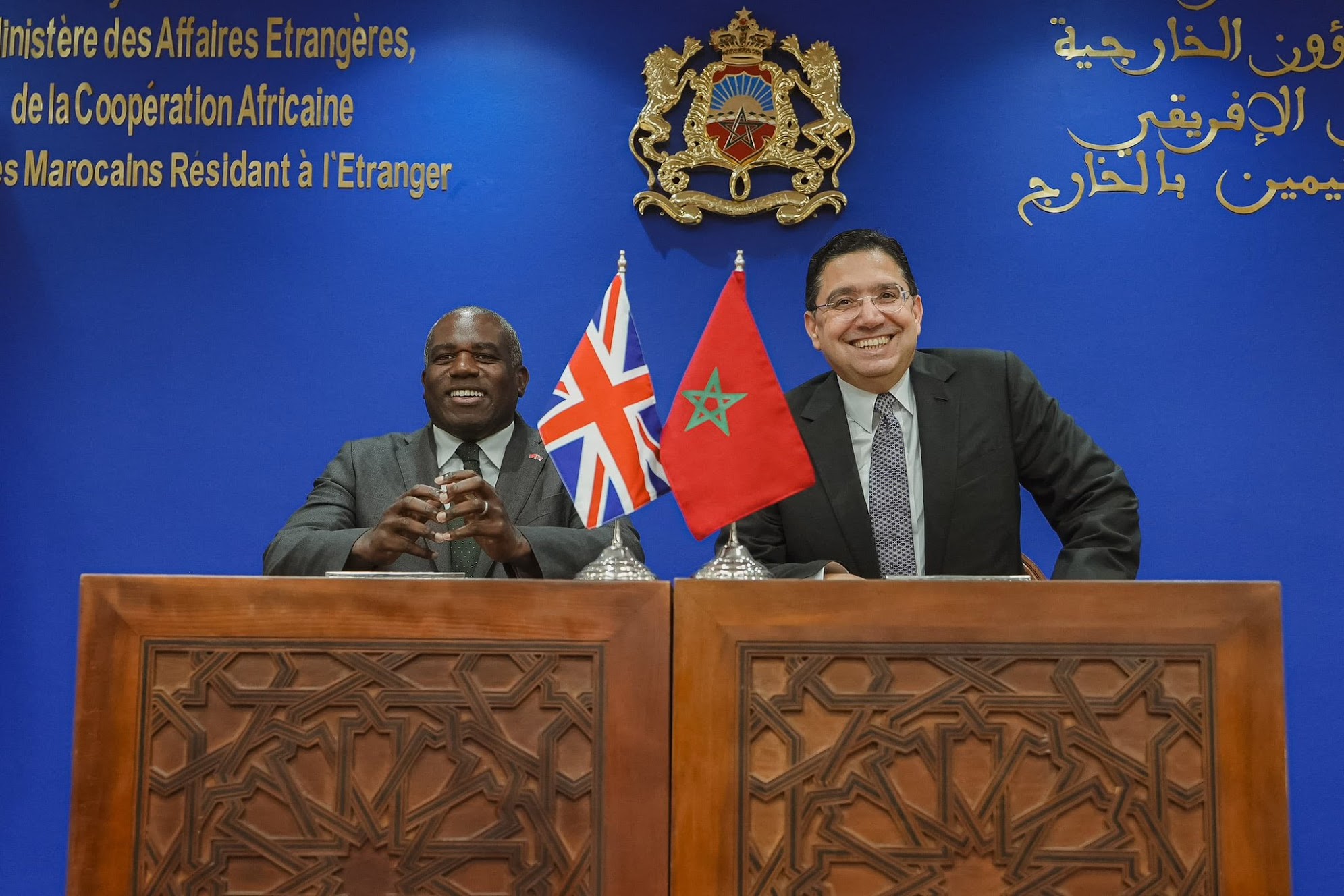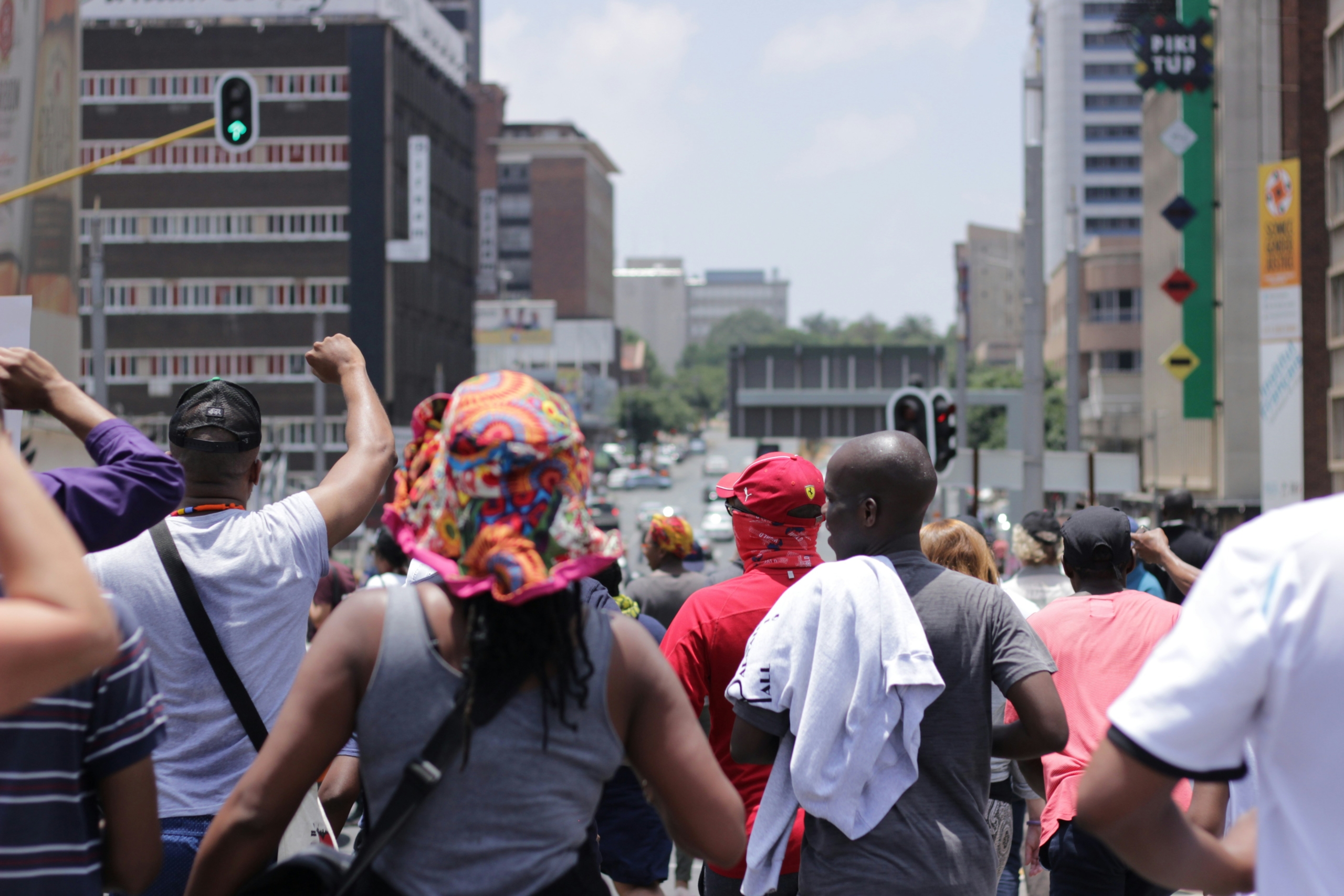We are excited to announce that Brink is now part of Africa Practice. Learn more
UK-Africa Strategy: Trade Diplomacy

In June, UK Foreign Secretary David Lammy unveiled a new Africa Approach developed in consultation with stakeholders from the continent. The consultation processes aimed to elicit exactly what Africans wanted from a partnership with the UK.
The resounding answer was growth – Africans want secure, sustainable growth, to be treated as equal partners, and to be offered more choices, especially regarding who they do business with. But how do you achieve this?
Lammy has made trips to eight countries on the continent formulating an answer, becoming the first ever UK Foreign Secretary to visit Chad and the first to visit Morocco and South Africa since William Hague in 2011 and 2013, respectively. These engagements have been underpinned by a doctrine called “progressive realism”, which Lammy has advanced since his time in the shadow cabinet.
The Lammy Doctrine
He describes it as a blend of the “ethical” foreign policy espoused by Robin Cook – who served from 1997-2001 and advocated for intervention in Kosovo and Sierra Leone – with the strategic pragmatism of Ernest Bevin – who steered Britain into NATO after 1945. Lammy, when speaking about his inspiration, consistently acknowledges that both men were products of their time, each possessing blindspots, despite their merits. Cook was able to indulge in greater optimism as there were fewer crises in the pre-9/11 world, whereas Bevin had a callous blindspot to the injustices of the British Empire.
Similarly, progressive realism must be thought of as emerging from a particular context too. One where there is an increasing pressure for diplomatic engagements in the Global North to answer “what’s in it for me?” from the outset. US President Donald Trump’s transactional foreign policy, and his fixation on correcting trade imbalances despite the US Dollar’s status as the global reserve currency, represents the most extreme form of this logic. Domestically, the Labour Party’s attempt to position itself as a broad church in an increasingly polarised political environment also pushes it towards concepts malleable enough to accommodate diverse – and at times competing – policy impulses.
Finally, and most importantly, Africa’s diplomatic environment is increasingly multipolar. From Turkey to South Korea, new partners are expanding their footprint on the continent, often at the expense of traditional players. Together, all these shifts have compelled the UK to recalibrate both the tone and substance of its African engagement.
Continental characteristics
The visit to Morocco was the clearest case of progressive realism in action as Lammy broke with longstanding UK policy to endorse Morocco’s autonomy plan for Western Sahara as “credible, viable and pragmatic”. The move aligned London with growing international support for the plan, including key regional allies, the US, France and Spain. Despite Morocco having ceded little to Sahrawi aspirations for self-determination since putting forward the blueprint in 2007, its plan has gained momentum in recent years. A key breakthrough came with US recognition in 2020 under the Abraham Accords, in exchange for Morocco normalising relations with Israel. Key in the timing of Lammy’s endorsement was a sense that the UK cannot be left behind as other countries built relationships with Morocco.
Lammy used the endorsement as a conduit to commercial opportunities, capitalising on Morocco’s growing role as an emerging green energy hub and co-host of the 2030 World Cup. UK Export Finance committed GBP 5 billion to support business across Morocco, including major defence contracts and a deal for British engineering firm Populous to design the 115,000-seat Grand Stade Hassan II – the world’s largest stadium and a likely World Cup final venue. While few people in the UK will be aware of the Western Sahara dispute, a mention during the broadcast of the 2030 World Cup that the stadium was British-designed will lend a gloss to the commercial slant of Lammy’s foreign policy.
More trade, less aid
The other most significant aspect of progressive realism was the decision to cut foreign aid spending from 0.5% to 0.3% of gross national income by 2027 to support an increase in defense spending. This decision has repositioned the continent using the vocabulary of “trade not aid” and has called on the UK to act as an “investor not a donor”.
Practically, this has been accompanied with promises to simplify the Developing Countries Trading Scheme (DCTS) scheme to encourage more trade, which benefits 38 African countries, and to review tariffs with South Africa, Egypt, Morocco and Tunisia. The UK’s development finance institution, British International Investment, has also adopted the approach, signing agreements with South Africa’s Public Investment Corporation, one of the continent’s largest asset managers, and Wave Money Mobile, an African fintech unicorn, this year.
Ultimately, progressive realism for Africa is a reflection of the changing circumstances of engagement in a multipolar order that the UK has interpreted as demanding opportunism. Built into the strategy is a clear acknowledgement that African states have a wider array of partners and that the UK must compete to be amongst them. Also present in the strategy is a shift from cultivating soft power to more commercially-oriented opportunities. While questions rightly remain over how “progressive” it truly is, its strategic ambiguity offers ideological flexibility, which the UK will attempt to utilise as it prioritises deal-making to secure growth and navigates a landscape where it is no longer the default partner.
Proud to be BCorp. We are part of the global movement for an inclusive, equitable, and regenerative economic system. Learn more


